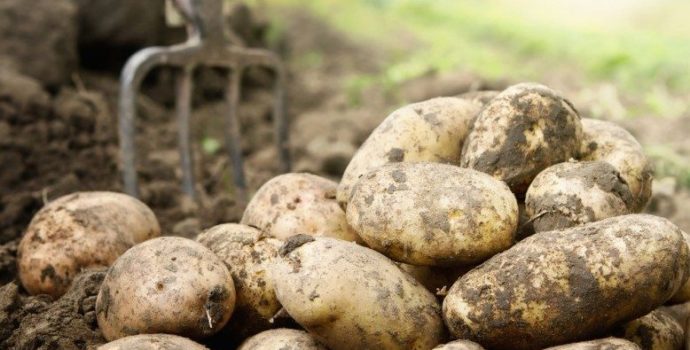Government & Eu Brexit Position Has to Put Farming First

Launching IFA’s policy Brexit: The Imperatives for Irish Farmers & the Agri-Food Sector in Dublin today, IFA President Joe Healy said the implications for Irish agriculture are so serious that farming has to be first in the Government’s negotiating position.
Joe Healy said the threat of Brexit is the most significant challenge facing our farming and food sector in the history of the State, with 40% of our food exports going to the UK. He said farmers expect our Government to launch a major diplomatic offensive at EU level that places our issues at the heart of the negotiations.
Simply put, no other Member State and no other sector is as exposed in these negotiations.
“UK is our closet market, of high value with similar preferences. The implications of a hard Brexit are stark: the ESRI estimates a potential reduction of EU trade to the UK of over 60% for dairy and 85% for meat. Translating this to an Irish context would mean a fall of €1.5bn in meat exports, with dairy exports falling by over €600m.”
Irish farming and the agri-food sector is particularly vulnerable to Brexit due to:
- A high dependence on the UK market;
- High EU tariff protection applying to major agricultural products;
- The land border with Northern Ireland, with the potential to disrupt trade flows, and undermine animal health co-operation; and
- The importance of the CAP budget to farm income – UK a net contributor
Joe Healy said IFA is clear that farming and food must be top of the Brexit agenda, not only in Ireland, but at EU level. “With 22 million farmers and 40 million related jobs, there is a wider strategic objective here to maximise the future value of the EU farming and food sector.”
The key priorities for the farming and the food sector are the maintenance of the closest possible trading relationship between the UK and EU, while preserving the value of the UK market; and a strong CAP budget following the UK’s departure, which is critical for farm incomes, farm output and economic activity in rural Ireland.
Specifically, IFA has identified that, if the UK exits the Single Market and Customs Union, there must be a Comprehensive Free Trade Agreement between the EU and UK, which would include the following specific elements for agriculture and food:
- Tariff-free trade for agricultural products and food;
- Maintenance of equivalent standards on food safety, animal health, welfare and the environment; and
- Application of the Common External Tariff for imports to both the EU and UK.
IFA Livestock Chairman Angus Woods said the UK is the market for 50% of Irish beef exports. “It’s a high-value market and consistently pays above the EU average. Any reduction in access to, or the value of the UK market, would have a very negative impact on the Irish beef sector, and potentially the overall European beef market.”
IFA Deputy President Richard Kennedy said one-third of dairy exports went to the UK in 2016. Our cheddar cheese volumes of 78,000 tonnes represented 82% of all cheddar imported by the UK last year. “Retention of tariff-free access is critically important, particularly for cheddar exports. The loss of this, or indeed any negative impact on access, could have a destabilising impact on the overall value of the Irish dairy sector.”
IFA’s Project Team led by the President Joe Healy will be undertaking high level contacts with the Oireachtas, Government Departments, the EU Commission and the EU Parliament in the coming months. IFA will also be engaging with the wider agri-food sector and with farming organisations across Europe.
IFA Director General Damian McDonald announced that Elaine Farrell has been appointed IFA’s Brexit co-ordinator for the campaign.
IFA will hold a major Brexit event on Mon, 24th April next. EU Commissioner for Agriculture Phil Hogan, the Minister for Agriculture Michael Creed, IFA representatives and industry leaders will speak at the event in Goffs, Co Kildare. Find out more or book your place here!
Read the full IFA Position Paper on Brexit




